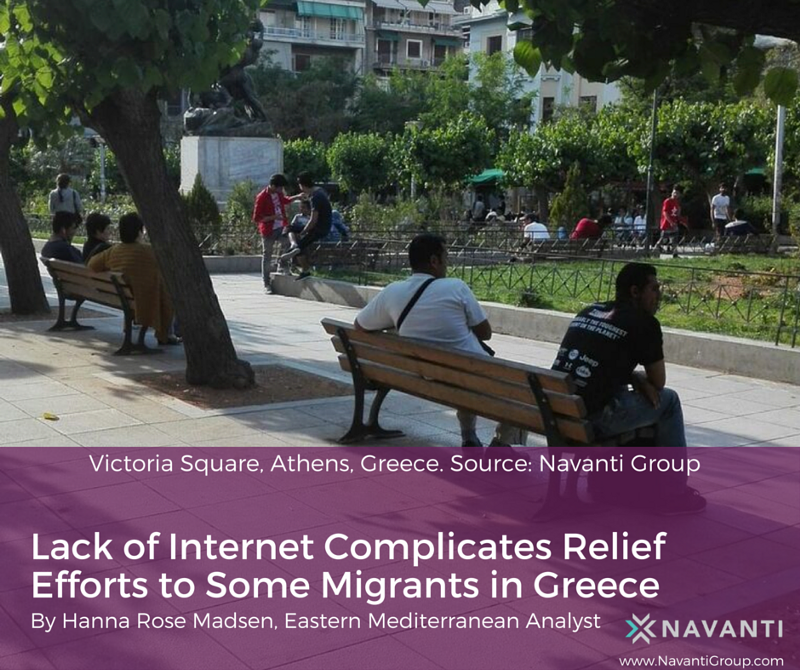Lack of Internet Complicates Relief Efforts to Some Migrants in Greece

Accessing the Internet and mobile networks remains difficult for migrants and refugees across Greece.
In an April 2016 study, the United Nations Refugee Agency (UNHCR) reported nine of 34 migrant sites and settlements in Greece have little to no access to 3G or WiFi Internet. Fifteen sites and settlements reported access to 3G only. Another study completed by small grassroots humanitarian groups reported that 17 of 33 sites and settlements had little to no WiFi access.
>
“In Greece, the facilities don’t have Internet. However, young refugees have smartphones and move around to get connected.”
Government agencies and humanitarian groups rely on Skype, social media, webpages, and mobile apps to inform and connect to migrants. Without access to internet and 3G, migrants and refugees spread information via word of mouth and real life social networks. However, these inter-personal, low — tech strategies among migrants are vulnerable to misinformation and complicate aid efforts.
Access to the Internet may not resolve issues of distrust between migrants and aid providers, but could ensure more accurate information is reaching migrants. Government agencies and humanitarian agencies may have to work with migrants to create interpersonal information systems that migrants and refugees will trust and use.
>
“Migrants and refugees are using Whatsapp and Viber to contact family members in their countries or contact their smugglers. They keep real social networks, not online ones, and they talk to other refugees in the camps and they listen to their recommendations.”
>
“We talk on the phone, I don’t use Facebook anymore. I use Whatsapp and Viber, but my sister gives me information about government policies. There are many sources talking about refugees now. It’s hard to find information that you want, so most people receive updates from family members or someone that knows about these things.”

